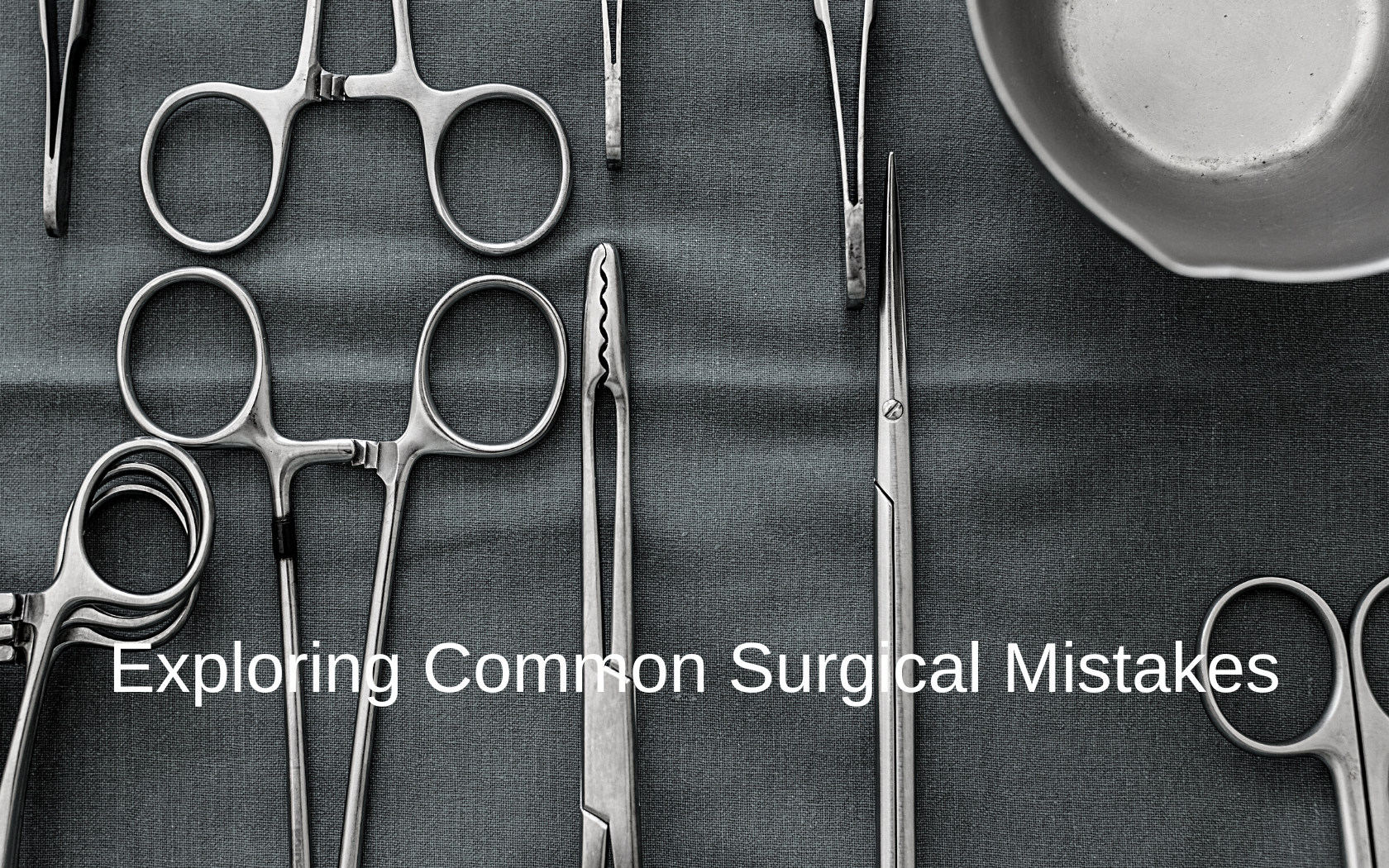Imagine waking up from surgery, happy to have a repaired hip—only to find out your surgeon operated on the wrong side. It’s unthinkable, and it almost seems almost impossible. But surgical errors like that happen to thousands of people each year. At least 4,000 in the U.S. each year, to be exact.
Shocking mistakes, like operating on the wrong body part, happen more often than we think. For example, just take the case of the doctor who amputated the wrong leg. His mistake was the devastating outcome of a series of errors committed by hospital personnel. Somehow, the hospital’s computer system and the operating room schedule had the wrong leg listed for amputation.
Wrong-site surgery isn’t the only type of surgical error. Let’s take a look at the most common mistakes surgeons make, plus what you need to file a surgical errors lawsuit.

Most Common Surgical Errors
Surgical errors can vary in nature and severity. These are some of the most common incidents that could warrant a surgical errors lawsuit:
- Surgical instruments left behind. (Forgetting surgical instruments, sponges, or other objects inside the patient’s body).
- Wrong-site surgery. (Operating on the wrong body part or the wrong side of a body part.)
- Wrong patient surgery. (Operating on the wrong patient.)
- Anesthesia errors. (Administering too much anesthesia or the wrong type can kill a patient or cause permanent injuries. Administering too little can cause the patient to stay awake or even feel the surgery).
- Nerve damage. (A surgeon cuts or nicks a nerve, leading to pain or loss of sensation in the affected area).
- Infection. (Failure to maintain proper sterile conditions can lead to postoperative infections.
- Hemorrhage or Bleeding. (Also surgeries cause some amount of bleeding. Improper control of bleeding, nicking an artery, or giving improper amounts of medication can cause excessive bleeding or bleeding issues).
- Organ damage. (Accidental damage to organs during surgery.)
- Improper wound closure. (Poor stitching or closure of surgical incisions can lead to complications).
- Delaying surgery. (Unnecessary delays can impact patient outcomes.)
The Impact of an Error
Surgeries themselves are serious business, and so are surgical errors. They can have devastating outcomes for patients, causing permanent injuries and even death. There are no “do-overs” with surgery, unless you count additional surgeries or procedures that are needed to reverse the mistake. Those may be dangerous as well.
Some surgical errors, like wrong-site surgery and wrong-patient surgery, are what the medical and legal world terms “never” events. They are mistakes that should never occur. A patient who is harmed in this way has clear grounds for filing a surgical errors lawsuit.
According to one study, wrong-site surgeries are rare, only occurring in about 1 in 113,000 surgeries. But even one wrong-site surgery is one too many!

Reasons Why Surgical Errors Happen
Research over the years has revealed that surgical errors often result from a combination of factors. Some common reasons for surgical errors include:
- Communication breakdown. Inadequate communication among surgical team members can lead to misunderstandings. This is how surgical errors like wrong-site surgery or wrong-patient surgery might occur.
- Inadequate training or experience. If a surgeon hasn’t had enough training or isn’t qualified to perform a certain procedure, they could commit an error.
- Equipment issues. Malfunctioning or improperly used surgical equipment can damage organs or tissues.
- Alcohol/Drug use. It’s rare, but there have been cases where surgeons have operated on patients while under the influence of drugs or alcohol. A patient injured by such an irresponsible surgeon has clear grounds to file a surgical errors lawsuit.
- Burnout. If the surgeon or the surgical team is overworked, overly tired, or rushed, mistakes are more likely to happen.
- Hospital issues. Problems in the hospital can contribute to surgical errors. These include insufficient staffing, resource constraints, and inefficient protocols.
- Poor coordination in the operating room. All operations, especially complex ones, require seamless collaboration among surgical team members. Lack of teamwork can contribute to operation errors.

Can I File a Surgical Errors Lawsuit?
You might be surprised to learn not every surgical mistake constitutes medical malpractice. For it to be considered a true surgical error, it has to be an unintentional, preventable injury that wouldn’t be a “known acceptable risk of surgery”. It’s something that could be avoided by following standard protocol.
That being said, plenty of surgical errors lawsuits are filed each year. In fact, most malpractice claims in hospitals are related to surgical errors.
If you want to know whether you have grounds to sue for surgery malpractice, we invite you to schedule a free consultation with our law team. We’re glad to listen to your case and tell you what legal options you may have.




